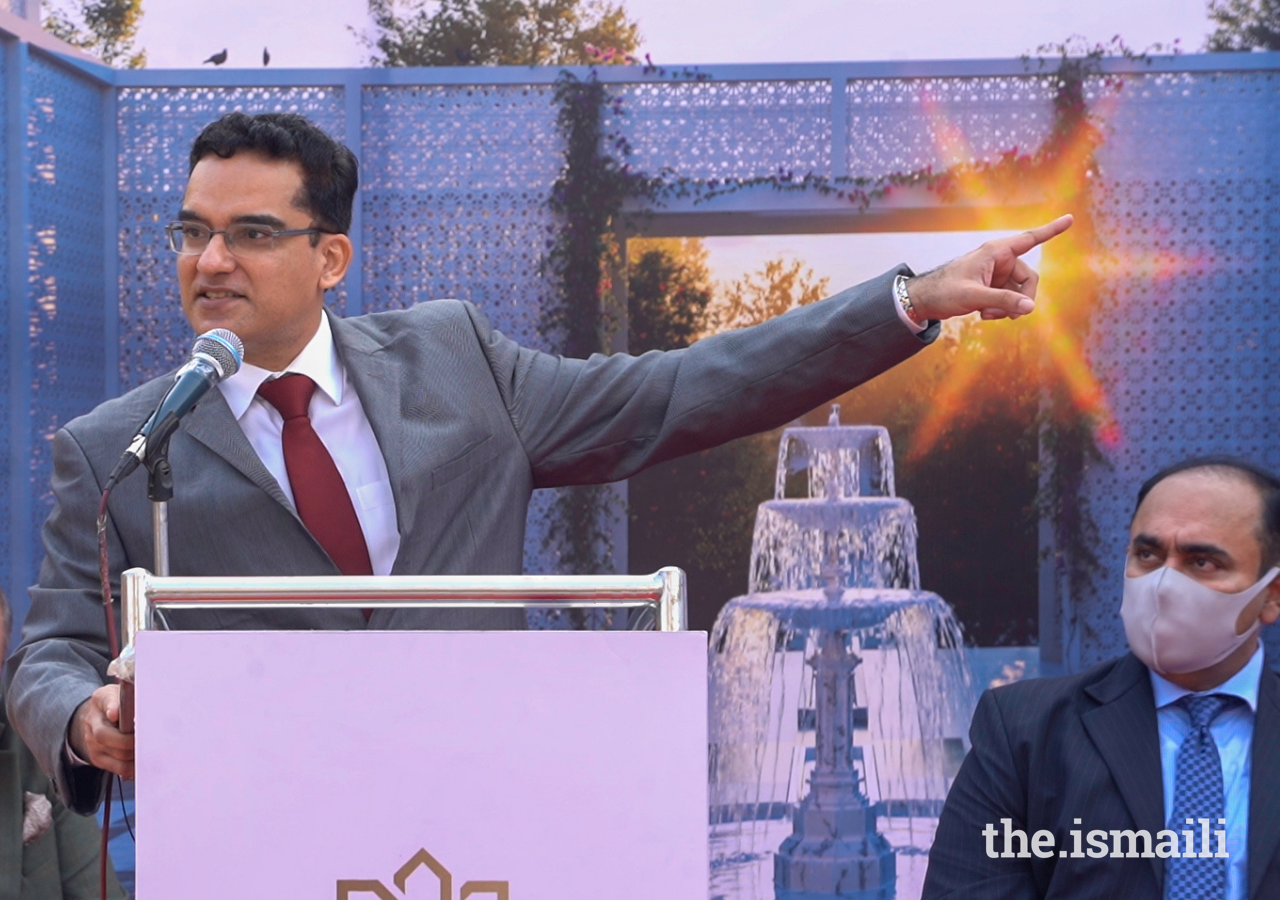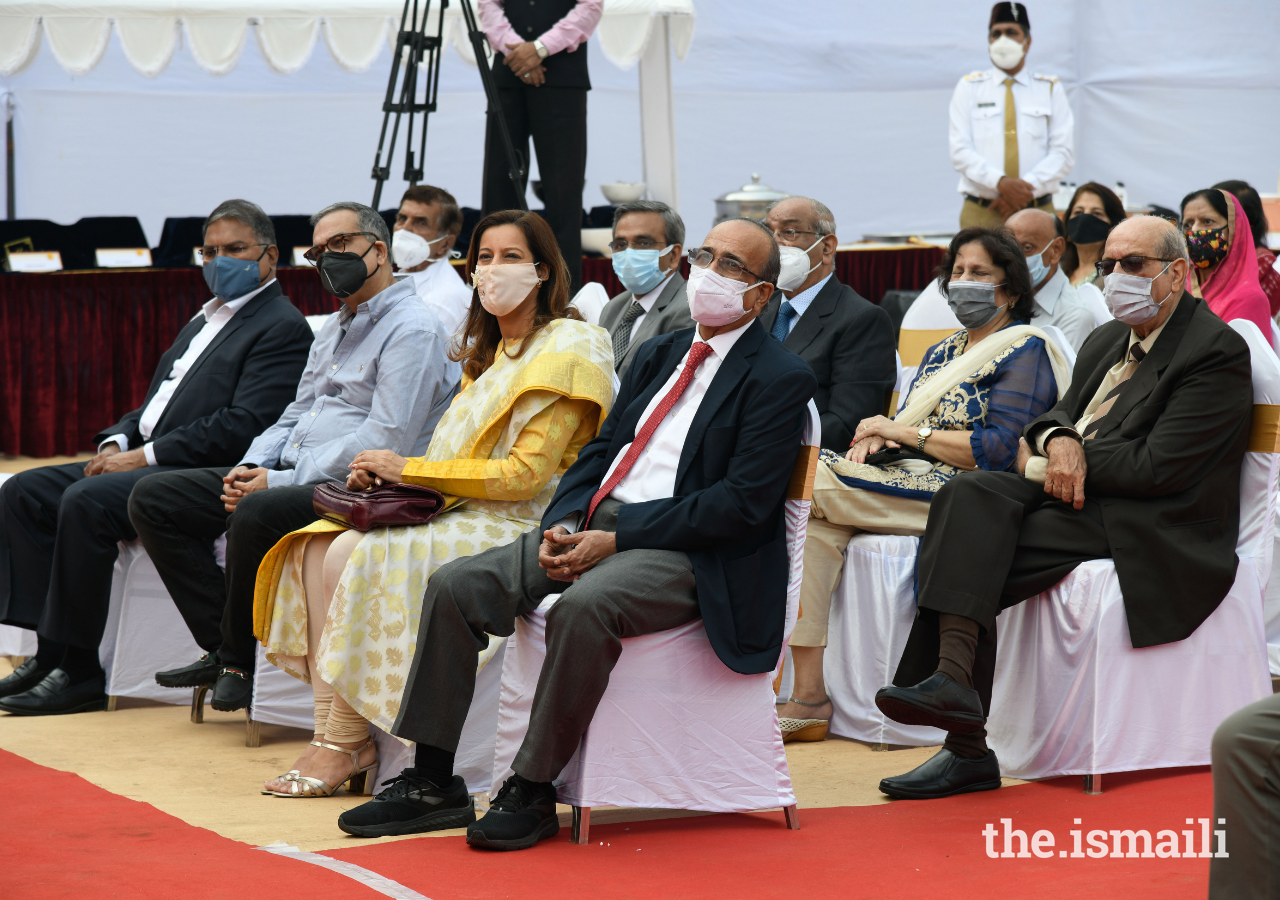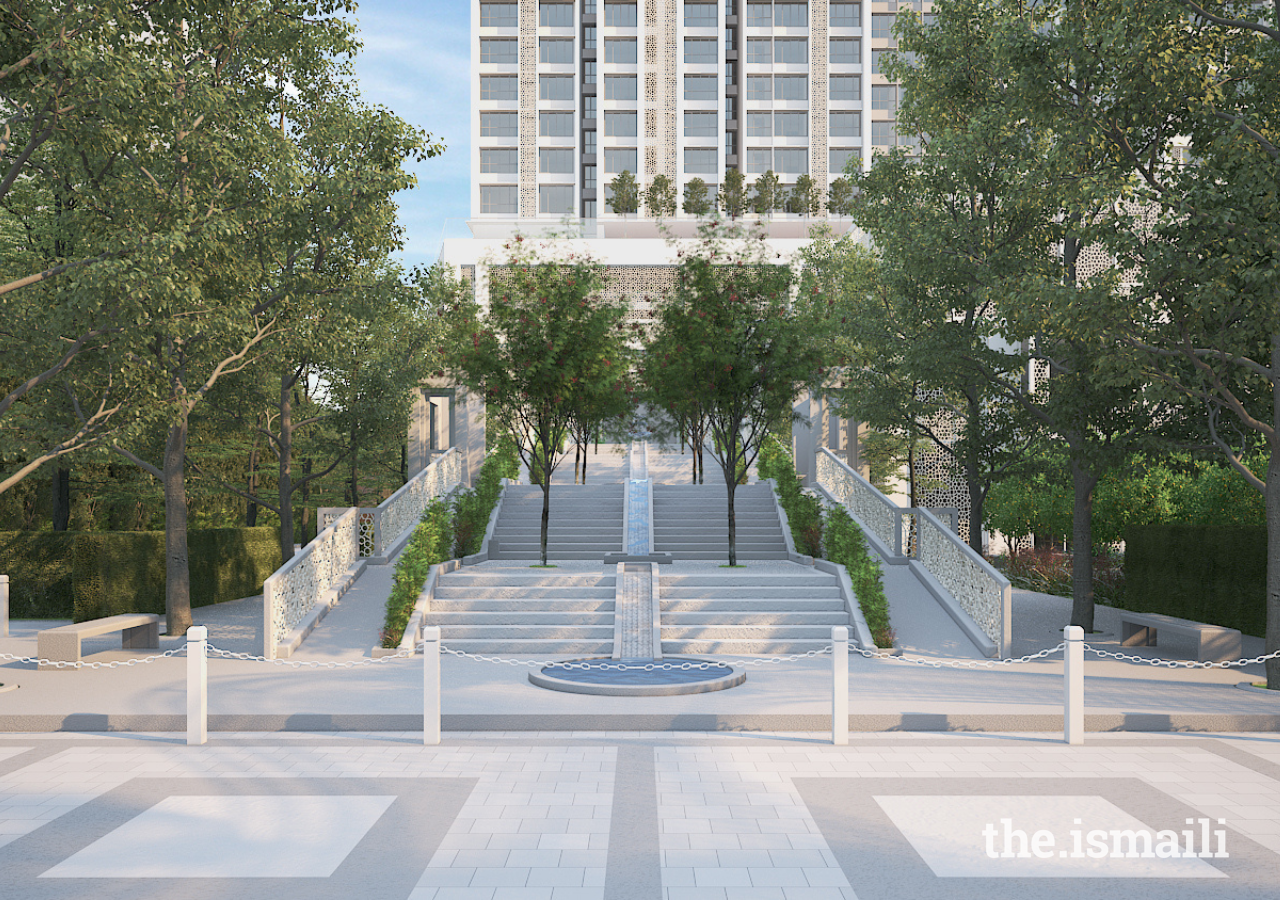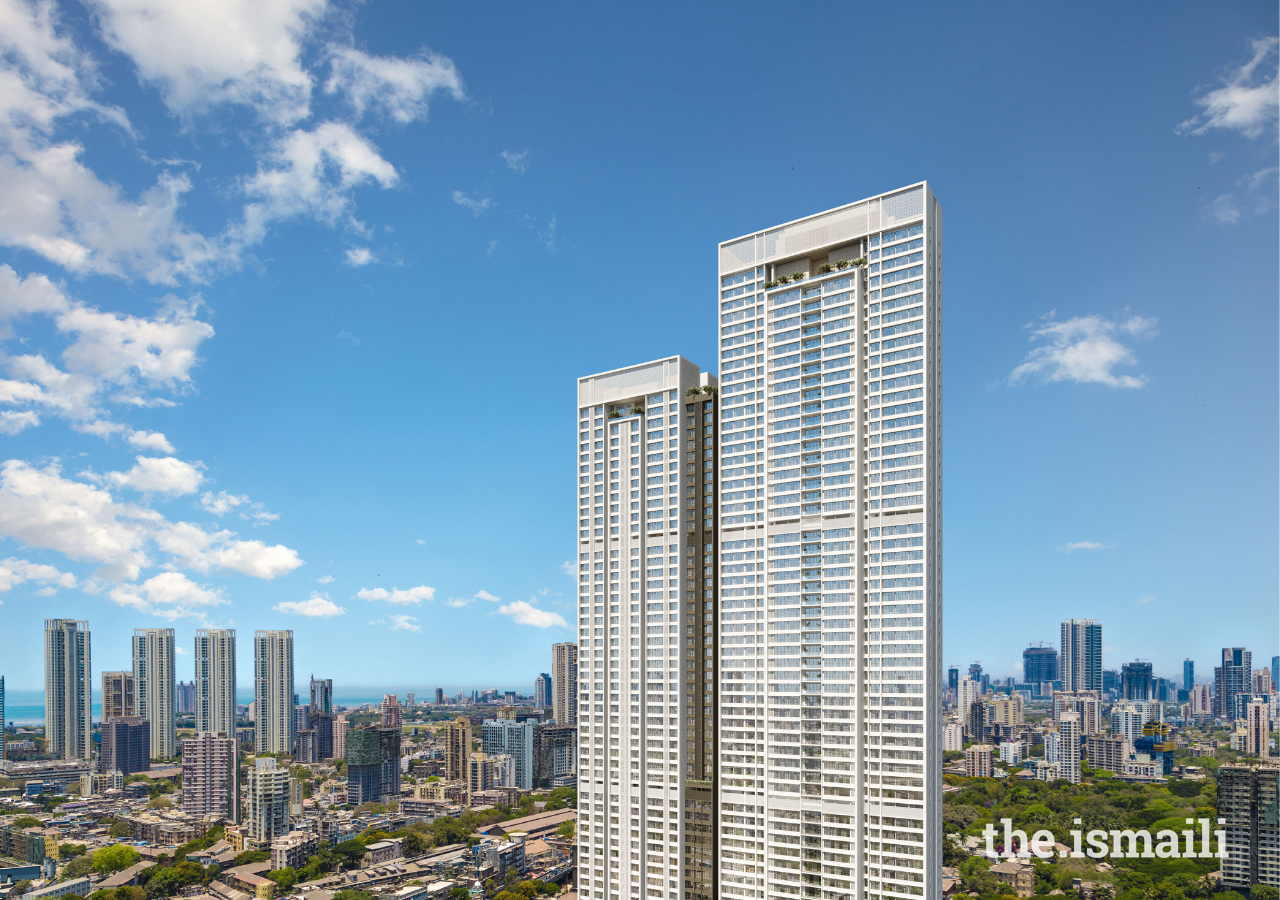While the project is modern and future-looking, it is also deeply rooted in history. The Aga Hall Estate has evolved over the past 150 years to include a community housing initiative, a high-performance school, the Prince Aly Khan Hospital, and a Jamatkhana.
The Aga Hall Estate was established as the family residential domain by Imam Hasan Ali Shah (Aga Khan I) in 1848 - over 170 years ago. It was later home to Imam Ali Shah (Aga Khan II) as well as Imam Sultan Mohamed Shah (Aga Khan III). Even today, Aga Hall retains historic neighbourhood bonds with nearby Hasanabad, Imam Hasan Ali Shah’s final resting place.
From a pioneering housing community complex, the Aga Hall Estate is now embarking on a major transformation into a renowned urban hospital and school, under the patronage of its owner, the Prince Aly Khan Hospital Charitable Trust.
An integral part of the new development will be a multi-generational complex consisting of two tall buildings – a 45-storied tower to house the current residents of the Estate and a 54-storied tower with 373 apartments for sale on the open market. The residential complex will be built to international standards, incorporating energy efficient and environmentally sensitive features including a range of amenities for a healthy lifestyle and well-being. High-quality buildings will replace earlier housing and community facilities. Residents and new owners will secure freehold ownership of new apartments integrating state-of-the art design, comfort and safety features.
For AKDN, the project goes far beyond the two high-rise buildings, with a key component being to develop a new, multi-specialty, purpose-built Prince Aly Khan Hospital (PAKH), which currently shares the Aga Hall site with its residents. Other components include a modern Jamatkhana and a new Aga Khan School.
Commenting on the project in which she has been engaged for many years, Princess Zahra said, “We are delighted that construction has commenced on this very important redevelopment project. Aga Hall Estate has a long history associated with generations of my family and has been at the centre of community life for many decades, providing homes, education and health facilities to residents and the broader community of South Mumbai. The aim of this redevelopment is to improve all of the facilities offered at the site and create a high-quality experience for people living, visiting or accessing the services at the complex.”
“The intent is for the residential redevelopment to fund a new hospital facility”, said Amin Manekia, Chairman of PAKH. “We have a unique opportunity here to build a hospital that will offer world-class, affordable healthcare, across a range of specialisations.”
PAKH has a rich history dating back to 1945, starting out as a 16-bed facility in a rented flat in Dongri. Today, the hospital has transformed into a 150-bed multi-specialty, acute-care facility that serves over 170,000 outpatients and 9,000 in-patients annually. PAKH played a pivotal role during the Covid-19 pandemic, treating over 2,300 patients and offering thousands of vaccinations. The new 300-bed PAKH facility will be located on Nesbit Road opposite its current location.
The redeveloped Aga Hall Estate will also include a new Aga Khan School along with several beautiful and tranquil gardens, inspired by the Nishat Baug of Kashmir and designed by Aniket Bhagwat. A new purpose built Jamatkhana will be nestled in the landscape and will provide a space for peaceful contemplation.
The residential project has recently earned the EDGE Advanced Certification, a globally recognized initiative of the World Bank Group for green buildings - the first and largest AKDN project to receive this certification. The EDGE Advanced standard is reserved for designs that project energy savings of up to 45 per cent, water savings of up to 50 per cent, and embodied energy (energy used in project creation) savings of up to 32 per cent. Only a limited number of projects in India have received this certification so far. The project is also an IGBC Pre-Certified Platinum-rated building.
“This is an unprecedented opportunity,” said Onno Ruhl, General Manager of the Aga Khan Agency for Habitat. “We are redeveloping a historical site, creating value for generations to come; and we are doing so in a way that is sustainable. Green buildings are essential to how we combat the impact of climate change.”
“The site has been cleared, approvals are in place and construction has commenced,” added Vipin Mittal, who serves as the CEO of the project and has a long track record of building projects of high standard in Mumbai. For architect PG Patki, the challenge was to design a modern space that was anchored in its historical narrative. The site design therefore incorporates heritage elements such as patterned jalis, and uses water and shade as key elements. The 140-year old Aga Hall Estate gate and fountain have been preserved for reinstallation. The project is scheduled to be fully completed by mid-2029, although the initial apartments will be ready for occupation in late-2025.
The project has already generated a high level of interest from potential buyers in India and internationally. As construction has been initiated, the Aga Hall Estate apartments are now available for sale. For more information, see the brochure.











